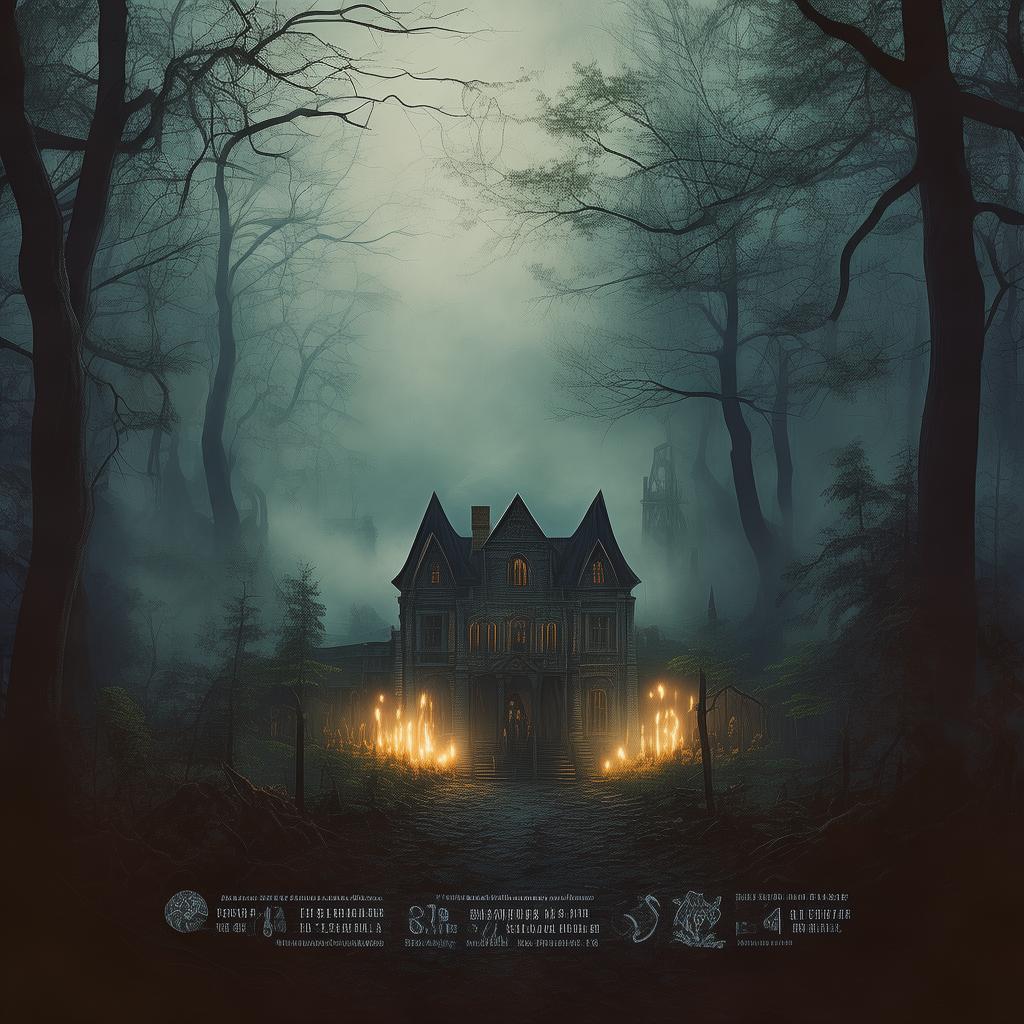The Haunting of the Empty Kitchen
In the heart of a quaint, fog-shrouded town, there stood an old, abandoned restaurant known only to the locals as "The Empty Kitchen." The sign above the door, faded and peeling, read "Riize," a name that had long since vanished from the lips of the living. The restaurant had been closed for years, a relic of a bygone era, its windows boarded up and its doors locked against the encroaching ivy and the whispers of the wind.
One rainy evening, a young chef named Liang, driven by a thirst for adventure and a desire to leave his mark on the culinary world, decided to take on the challenge of restoring "The Empty Kitchen." With a heart full of dreams and a wallet empty of funds, Liang believed that the restaurant could be reborn as a beacon of culinary excellence in the town.
As Liang worked tirelessly to strip away the years of neglect, he uncovered a series of peculiar occurrences. The kitchen seemed to have a life of its own, with utensils moving on their own, and the occasional sound of footsteps echoing through the empty space. The most unsettling of these occurrences, however, was the taste of something distinctly off in the food he prepared. The dishes, once vibrant and full of flavor, now lacked zest and character.
Determined to uncover the source of the problem, Liang began to investigate the restaurant's history. He discovered that the original chef of Riize, a man named Chef Wang, had vanished under mysterious circumstances decades ago. The townsfolk spoke of him in hushed tones, their voices tinged with fear and reverence.
One night, as Liang was cleaning the kitchen, he heard a faint whisper. "You must not stop," it said, its voice echoing through the empty space. Liang, startled, turned to find nothing but the empty room. He dismissed it as a trick of the mind, but the whispers grew louder and more insistent.

Determined to confront the source of the haunting, Liang sought out the old townsfolk. They told him tales of Chef Wang, a man who was said to have a gift for cooking but also a penchant for obsession. It was rumored that he had become so fixated on his culinary creations that he had begun to neglect the living, his focus solely on the art of cooking.
As Liang delved deeper into the past, he uncovered a journal belonging to Chef Wang. The journal was filled with recipes, but also with entries that spoke of a haunting presence in the kitchen, a spirit that would not be sated until the chef's final creation was completed. The journal spoke of a dish so perfect that it would transcend the bounds of the physical world, a dish that would become the chef's legacy.
Liang realized that the spirit of Chef Wang was trapped in the kitchen, bound to the uncompleted dish. The ghostly whispers were his plea for help, his call for someone to finish what he had started. But to do so, Liang would have to face the greatest challenge of his life: to create a dish that would satisfy the spirit's unyielding quest for culinary perfection.
With the help of the townsfolk, Liang began to piece together the recipe, using the ingredients that Chef Wang had once cherished. He worked through the night, his hands trembling with anticipation and fear. As the dish began to take shape, the kitchen seemed to come alive, the air thick with the scent of spices and the promise of something extraordinary.
When the dish was finally ready, Liang placed it on the table, his heart pounding with a mix of excitement and trepidation. He took a deep breath and approached the table, his eyes fixed on the dish. The kitchen was silent, save for the faintest whisper of the wind.
With a trembling hand, Liang took a bite. The flavor was indescribable, a symphony of flavors that danced on his tongue. The spirit of Chef Wang seemed to sigh with relief, and the whispers grew softer, until they were nothing more than a distant memory.
Liang looked around the kitchen, the once-empty space now filled with a sense of peace. The spirit of Chef Wang had been laid to rest, his quest for culinary perfection complete. The Empty Kitchen had been reborn, not as a place of fear, but as a testament to the power of culinary art and the enduring legacy of a man who had once called it home.
As the sun rose over the town, Liang stood in the kitchen, the first rays of light casting a golden glow over the table. He knew that the journey had changed him, that he had faced his own culinary conundrum and emerged victorious. The Empty Kitchen was no longer just a place of haunting; it was a place of hope and inspiration, a testament to the enduring power of the human spirit.
✨ Original Statement ✨
All articles published on this website (including but not limited to text, images, videos, and other content) are original or authorized for reposting and are protected by relevant laws. Without the explicit written permission of this website, no individual or organization may copy, modify, repost, or use the content for commercial purposes.
If you need to quote or cooperate, please contact this site for authorization. We reserve the right to pursue legal responsibility for any unauthorized use.
Hereby declared.









